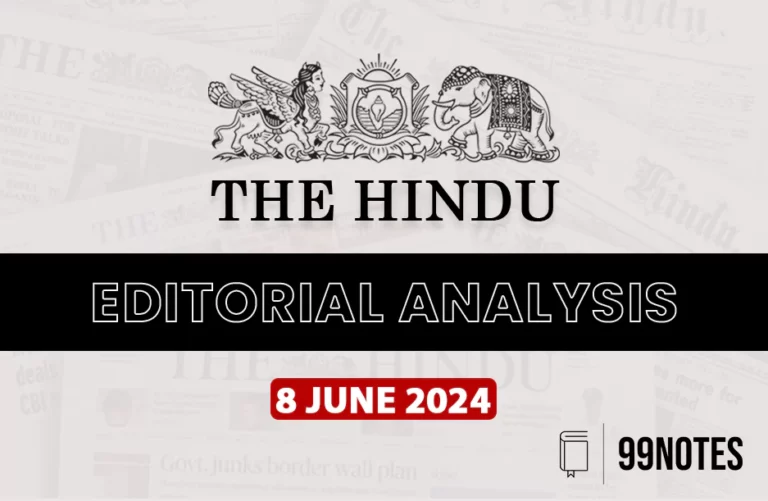29 July 2024 : Indian Express Editorial Analysis
1. After Budget, the challenges
(Source: Indian Express; Section: The Ideas Page; Page: 13)
| Topic: GS3– Indian Economy – Government Budgeting |
| Context: |
|
Economic Challenges and Resilience
- The Union Budget 2024-25 underscores the numerous challenges facing the Indian economy.
- Finance Minister Nirmala Sitharaman began her speech by highlighting two significant macroeconomic risks:
- rising global economic uncertainty and
- inflation.
- These upfront mentions emphasize the vulnerability of an emerging economy like India to such risks. Despite these challenges, the Finance Minister expressed confidence in India’s continued resilient growth.
- This resilience hinges on a stable macroeconomic regime, sustainable debt, robust domestic investment, stable inflation, and rising consumption demand.
Fiscal Stability and Budget Numbers
- Maintaining fiscal stability in an uncertain economic environment is inherently challenging, particularly when balancing two competing priorities: creating fiscal space for social and developmental spending and reducing the debt level.
- The total size of the Union Budget 2024-25 is Rs 48.21 lakh crore, an increase of Rs 3.96 lakh crore from the previous year. This rise can be attributed to higher interest payments (around Rs 1 lakh crore), central sector schemes (Rs 70,000 crore), and centrally sponsored schemes and other grants to states.
- A portion of the increased transfers to states addresses the special category status demands of Andhra Pradesh and Bihar.
- Despite the rise in expenditure, as a percentage of GDP, central expenditure shows a decline from 15.06% to 14.77% between 2023-24 and 2024-25.
Debt Reduction and Fiscal Consolidation
- A faster reduction of debt is crucial given the substantial interest burden of Rs 11.62 lakh crore. With about 25% of the additional expenditure increase attributed to interest liabilities, fiscal consolidation becomes a priority.
- However, excessive fiscal consolidation can have adverse distributional, developmental, and growth consequences, necessitating a reassessment of the fiscal framework.
- Amidst high inflation, a significant portion of the debt could be mitigated without drastically reducing interest outgo from the Budget. Despite a projected decline in the debt-to-GDP ratio from its COVID-19 peak of 61% in 2020-21 to 56% in 2024-25, the interest payment to GDP ratio remains above 3.5%.
- This persistent interest liability constrains development expenditure, highlighting the need for a time-bound debt reduction path to alleviate the fiscal strain.
State-Level Reforms and Implementation Challenges
- The Budget also announced several reforms in areas traditionally managed by states, such as land, labor, capital, and technology use. These complex reforms, like encouraging states to lower stamp duties for property registration, face implementation challenges.
- Past attempts at such reforms, like those under the Jawaharlal Nehru Urban Renewal Mission, indicate persistent disparities in rates across states due to varied property market dynamics, land valuation, and revenue needs.
- While rationalizing stamp duty rates is crucial, it necessitates comprehensive land market reforms.
Role of the Union Government and Cooperative Federalism
- The Union government’s role in these reforms is largely facilitative. Successful implementation of major tax reforms, now more challenging due to states’ reduced fiscal autonomy post-GST, requires a bottom-up consultative process.
- Union-state coordination and the willingness of states to undertake reforms without compromising fiscal autonomy are critical for success.
- Experiences suggest that top-down approaches are less effective, emphasizing the need for cooperative federalism in driving these reforms.
| PYQ: One of the intended objectives of Union Budget 2017-18 is to ‘transform, energize and clean India’. Analyse the measures proposed in the Budget 2017-18 to achieve the objective. (250 words/15m) (UPSC CSE (M) GS-3 2017) |
| Practice Question: Critically analyze the Union Budget 2024-25 in the context of addressing macroeconomic challenges such as global economic uncertainty and inflation. Additionally, examine the role of cooperative federalism in implementing state-level reforms as proposed in the Budget. (250 words/15 m) |



